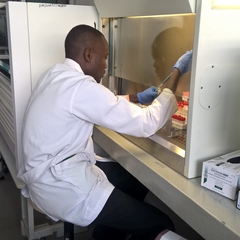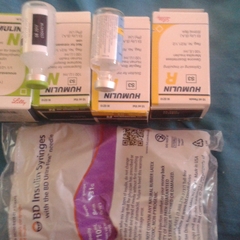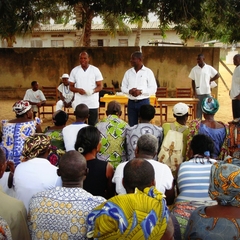
HIV/AIDS and Diabetes Care in Malawi
4 Jul 2019, 11:31 a.m. in Global Stories by Willis Kalitera
Malawi has been dominated by the raging epidemic of HIV/AIDS. It is a major setback for a health system which is overburdened and under-funded. Over the years diabetes is now one of the major diseases claiming lives every day in Malawi.
In Malawi, the prevalence of both types of diabetes is growing at an alarming rate, but sadly is given less attention by health systems. The following things need immediate attention:
- Early detection and diagnosis
- Ongoing Support for patients
- Care for people living with HIV/AIDS and diabetes
Most Malawians don’t know what diabetes is. Rural Malawi, which makes up 75% of the population, has the highest diabetes incidence in Africa. Many are ignorant of the symptoms, or attribute them to witchcraft. For example, someone can have a swollen leg and they will believe they should step on a “magic pin”. Many turn to traditional healers. Sadly, most cases go to the hospitals at a late stage and some don’t even make it that far.
Over the years, Malawi has experienced a rise in blindness and amputation cases, mainly because diabetes is still not a priority, or is overshadowed by many other problems. Knowledge and education about diabetes is only available to selected individuals in urban areas.
Diabetes is still regarded as a disease for the affluent. Most people find it hard to accept when diagnosed. Worse, with no support groups and poor or no counselling available, many find it hard to accept their new life. Post-diagnosis, only 3% return to the clinic for follow-up treatment, resulting in an increased death toll, particularly in rural areas. This is mostly attributed to lack of knowledge or poor quality counselling given to them in our hospitals. Nurses and clinicians in Malawi are only trained as general practitioners and do not specialize in diabetes care. Screening for diabetes is rare, and few physicians refer those at risk to prevention programs.
Diabetes, like many chronic conditions, is overshadowed by HIV/AIDS in most if not all developing countries. Today 1,800,000 Malawians are HIV positive and 1% of these patients are diabetic. Cases of type 1 diabetes and HIV are only found in urban populations and very few in the rural area. Cases in rural areas are usually hopeless, as once diagnosed with HIV, patients automatically qualify to be put on the free government “plumpy nut” feeding program. This diet program, which is sugary and high in carbohydrates, is designed without considering the needs of people with diabetes. In Malawi, most people with HIV/AIDS and diabetes receive only HIV workshops and support groups and lack the support required to live with both conditions.
To bring forward support and solutions to these issues, the Diabetes Awareness Association in Malawi focuses on informing, educating and counseling Malawians, especially those from low income areas, on the dangers of diabetes. Our main objectives are to raise awareness of diabetes, child obesity, enhance diabetes early diagnosis, improve management of diabetes and develop healthy eating among people.
The Association established the early diagnosis project, which intends to create a mobile clinic. We plan to build support groups and forums, as well as regional clinics in health centres so people do not need to travel many miles to access information or care. The project will support those living with HIV/AIDS who are also diabetic.
To learn more about the Association you can follow them on Twitter @DiabetesAwaren4 and Facebook.
Willis Kalitera, Managing Director of the Diabetes Awareness Association, can be contacted at Diabetesawarenessassociation@gmail.com, Kaliterajnr@gmail.com, or +265(0)9992503947.






